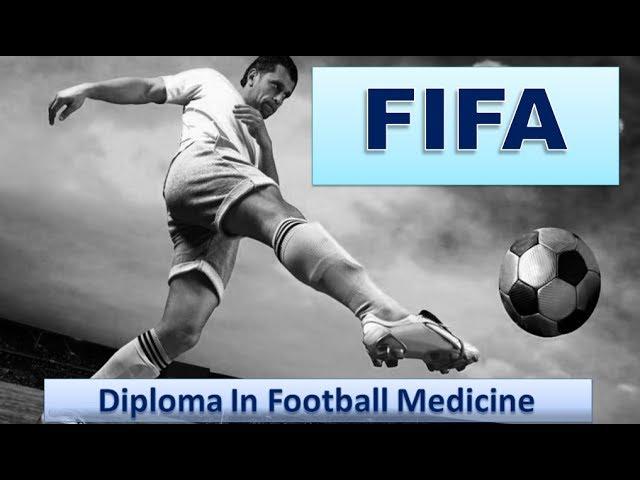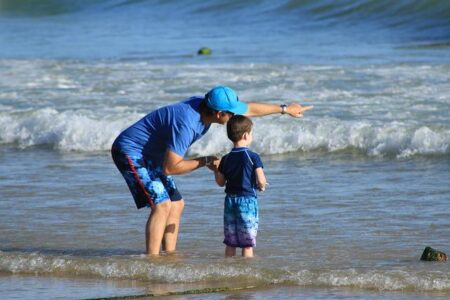As participants reach the halfway mark of the FIFA Sports Medicine Diploma, reflections and insights are coming to the fore. This internationally renowned program, designed to elevate the standards of football medicine worldwide, has attracted a diverse cohort of medical professionals dedicated to advancing player care and injury prevention. In this article, we explore the thoughts and impressions of attendees midway through the course, shedding light on the curriculum’s impact, emerging trends in sports medicine, and the challenges faced in bridging theory with practice on the global football stage.
Early Challenges and Key Learning Moments in the FIFA Sports Medicine Diploma
Embarking on the FIFA Sports Medicine Diploma has been a journey punctuated by unexpected hurdles and vital aha moments. One of the earliest challenges involved navigating the breadth of interdisciplinary knowledge, from injury biomechanics to nutritional strategies tailored for elite athletes. Initial readings felt dense and overwhelming, especially when confronting the rigorous scientific methodologies embedded in the coursework. However, these challenges sharpened critical thinking, encouraging a more integrative approach rather than isolated memorization.
Key insights gleaned during this phase include:
- Understanding injury prevention as a dynamic process rather than a fixed protocol.
- The importance of tailoring treatment plans to individual athlete profiles.
- Recognizing the subtle nuances between physical rehabilitation and psychological readiness.
- Appreciating evidence-based practice as the linchpin of sports medicine decisions.
| Challenge | Learning Outcome |
|---|---|
| Integrating multi-disciplinary knowledge | Emphasis on holistic athlete management |
| Decoding complex scientific literature | Enhanced analytical skills |
| Applying theory to practice | Improved confidence in clinical decision-making |
In-Depth Analysis of Course Content and Practical Applications
The curriculum is meticulously structured, blending theoretical foundations with hands-on clinical scenarios that resonate with the dynamic environment of sports medicine. Modules span from injury prevention strategies and advanced rehabilitation protocols to the latest in diagnostic imaging and athlete-centered care. What stands out is the emphasis on multidisciplinary collaboration, engaging physiotherapists, team doctors, and surgeons alike, ensuring a holistic approach to athlete health.
- Interactive case studies enhancing decision-making skills
- Real-world application of evidence-based practices
- Incorporation of cutting-edge research on return-to-play criteria
- Hands-on workshops focusing on manual therapy and taping techniques
This fusion of content culminates in a well-rounded skill set, preparing professionals not only to address common sports injuries but also to elevate overall team performance through innovative strategies. Participants frequently report immediate benefits, applying protocols on-site with tangible improvements in recovery times and injury recurrence rates.
| Topic | Application | Impact |
|---|---|---|
| Biomechanical Analysis | Gait and movement screening | Reduced injury risk |
| Nutrition for Recovery | Tailored dietary plans | Enhanced muscle repair |
| Psychological Resilience | Stress management techniques | Improved athlete focus |
Expert Recommendations for Maximizing the Diploma Experience
To harness the full potential of the FIFA Sports Medicine Diploma, experts emphasize the importance of proactive engagement throughout the course. Active participation in live workshops and virtual seminars not only enriches understanding but also fosters connections with fellow sports medicine professionals worldwide. Consistent review of course materials combined with practical application in real-case scenarios is essential. It’s recommended to maintain a reflective journal, documenting key insights and how they translate to clinical practice, thereby bridging theory and real-world impact.
Additionally, leveraging the diploma’s diverse resources-from peer-reviewed research articles to interactive case discussions-can accelerate professional growth. Below is a brief strategic checklist to optimize your learning journey:
- Set specific learning goals aligned with personal and professional needs.
- Engage regularly in multidisciplinary discussions to gain broader perspectives.
- Utilize FIFA’s online platform tools to track progress and revisit challenging topics.
- Schedule periodic reviews with mentors or colleagues to consolidate knowledge.
- Incorporate evidence-based approaches into practice early for real-time feedback.
| Recommendation | Impact |
|---|---|
| Active Workshop Participation | Enhanced practical skills |
| Reflective Practice | Improved clinical decision-making |
| Peer Discussion | Broader knowledge base |
| Regular Progress Tracking | Steady academic improvement |
Reflections on Networking and Career Impact within Sports Medicine
Engaging with a diverse network of professionals throughout the FIFA Sports Medicine Diploma has illuminated the profound influence that connections wield on career trajectories within sports medicine. From seasoned clinicians to emerging researchers, these interactions have fostered a dynamic environment where ideas flourish and new opportunities surface. Peer exchange, mentorship, and collaborative problem-solving have become pillars supporting both personal and professional growth.
Several key factors have emerged as critical drivers behind networking’s impact:
- Knowledge Sharing: Access to cutting-edge insights and practical experience
- Career Advancement: Opening doors to specialized roles and leadership positions
- Global Perspective: Exposure to diverse healthcare systems and patient populations
These elements collectively highlight that successful network-building is not merely about quantity but strategic, meaningful engagements. The ripple effect is clear-collaborations born from this vibrant community are influencing innovations and elevating standards in sports medicine worldwide.
| Networking Benefit | Real-World Impact |
|---|---|
| Shared Case Discussions | Enhanced diagnostic accuracy |
| Joint Research Projects | Publication in leading journals |
| Mentorship Connections | Career progression guidance |
| Workshop Participation | Skill upgrades and certifications |
In Conclusion
As the FIFA Sports Medicine Diploma reaches its midpoint, participants reflect on a rigorous yet rewarding journey that blends cutting-edge sports science with practical clinical insights. With expert-led modules and real-world case discussions, the program continues to equip sports medicine professionals with the skills necessary to advance athlete care globally. As the course progresses, the growing community of practitioners looks forward to applying their enhanced knowledge on the field, ultimately aiming to elevate standards in sports health and injury management worldwide.





